Financial Seminar for Young People—Session 1 Video Archives
FinCity.Tokyo held “Financial Seminar for Young People—Session 1” on Saturday, September 10, 2022.
The moderator was Jumu Muto from AKB48, and the speakers were Kumi Fujisawa, President of the International Institute for Social and Economic Research, and Kazunari Okuno, Managing Director (CIO) of Norinchukin Value Investments Co.
The theme of the day was “What is Money? The theme of the day was “What is Money?” and we had a thorough discussion about important investment and money knowledge that young people need to think about now!
This time, we are releasing an archived video to show you what happened on the day. If you want to watch it again, or if you missed it, please click here.
Table of contents
5:00…Opening~Lecture “Let’s think about the role of money”
43:05…Discussion
1:07:18…Lecture “Investing as a culture”
1:51:57…Discussion
Read the overview in the text
The Organization of Global Financial City Tokyo, whose mission is to raise Tokyo’s profile as an international financial city, has hosted free online “Financial Seminar for Young People: Session 1.” The session was the first in a seminar series that aims to improve financial literacy of young professionals and university students.
Instructors invited to speak at the event were Ms. Kumi Fujisawa, Chairperson of Institute for International Socio-Economic Studies of the NEC Group, and Mr. Kazushige Okuno, Managing Director and Chief Investment Officer, Norinchukin Value Investments Co., Ltd. (NVIC). Ms. Tomu Muto, a member of the female idol group AKB48 who is also qualified as financial planner, presented the event from the perspectives of the young. The seminar also involved instructors answering questions from viewers on such topics as the roles of money and investment.
Fujisawa started the Japan’s first investment trust evaluation company at the age of 27 after working for an investment management company. She currently serves as a member of deliberative committees of government ministries and an outside director of listed companies. At the same time, she teaches economics and money for people in a wide range of age groups in an easily understandable manner.
She started her talk with basics such as why money is needed and what are the roles of money. “Money and time have much in common,” she said, demonstrating her view that people can think about their lives through the lens of how to spend money, like planning how to spend a day. She recommended the viewers to list what they would do with 1 million yen if they had it at hand.
Also, she suggested that the viewers think about money to use for themselves and for others separately. And, as for money to use for themselves, she encouraged the viewers to create a life plan that includes specifies like what kind of job to do, where to live, and what kind of lifestyle to live so that they can know how much money they will need at each stage of life.
Regarding money to use for others, she said, “Money creates connections from the moment it is used,” “We can be involved in shaping the future by knowing where money flows into,” she explained.
On the topic of investment, Muto was enthusiastic about investing in individual companies, “I like searching for companies to support,” she said, “I believe that eco-friendly and people-friendly companies are the ones that will last for the long run.” To this, Fujisawa responded, “I think that’s beautiful.”
Fujisawa said that people can “play a role in supporting good companies” by buying shares in those companies. Then, she introduced a mechanism that if a company uses funds raised from investors to do something useful for the world, the company’s stock price would rise as more people would want to own the company’s shares. She stressed the social significance of investment beyond interests of individuals, as making money is not the sole purpose of investing but is “the ultimate form of supporting companies doing good.”
Being an entrepreneur herself, Fujisawa talked about businesses people can start with 1 yen. “Restaurants serve meals to people who are hungry; likewise, every business is paid for solving people’s problems,” she pointed out. According to her, hints for starting a business lie in the search for solutions to problems in daily lives.
In a discussion between Fujisawa and Muto, a university student’s concern was addressed. In response to the student’s remark, “I’m barely making ends meet and all the money I have goes to spending,” Fujisawa referred to a framework for investing loyalty points. She explained that the framework allows consumers to use their loyalty points granted for their online purchases and the like for automatic investment; and that she herself had invested in stocks of companies in the US and across the world using such a program whose minimum investment amount was 1 yen. “The money you have at hand is not all,” Muto concluded.
Asked about “areas where spendings should not be cut,” Fujisawa quickly responded, “It would be better not to skimp on spendings for your future, like acquiring qualifications.” Muto noted, looking back on her efforts to be certified as weather forecaster, “I had studied for five years before finally passing the certification exam on the eighth try.” “I believe it is important to spend money to study and acquire knowledge,” she said passionately. Fujisawa pointed out, “Once you have paid money [for acquiring qualifications and the like], the thought that you don’t want to waste the money becomes stronger.” “The risk of losing money for investing in yourself will get smaller and smaller if you maintain a strong sense of purpose,” said Fujisawa to encourage young people to invest in themselves.
Following the discussion, Mr. Kazushige Okuno of Norinchukin Value Investments appeared on the stage. In addition to managing funds worth 400 billion yen entrusted by professional institutional investors, he sells investment trusts to individual investors so that individuals can also invest in his funds. Okuno has been calling for individual investors to learn economics and ways of thinking through investment to boost their business skills, besides increasing their assets by investing them.
In his lecture for the session, Okuno talked on the theme of “Investing as a Culture.” Okuno declared that it is not investing but gambling to fret over short-term stock price fluctuations, saying “You cannot build wealth through gambling.” Using a case of purchasing farmland for 50 million yen as an example, he clearly distinguished investment where the buyer earns profits by growing and harvesting crops on the land, from speculative trading where the buyer’s objective is to sell the land at a higher price. And, he shared his experience as an investment manager: investment “takes time and efforts” as it is the case for growing crops.
Then, using the example of Nike, a US sports maker, Okuno explained that becoming a shareholder of a company by buying its shares is to become its owner. Companies make profits as a result of solving their customers’ problems, and Nike remains highly profitable because its high-performance sports shoes solve its customers’ problems by helping them win races. Based on that, he passionately talked about the social significance of investment: as companies solve problems while making profits, “society becomes a better place little by little.”
Okuno recommended the viewers to acquire views of investors to see the economics of business, and to rethink their ways of working. He said people who work for others, sell their time, and do not invest are “workers 1.0,” and encouraged the viewers to take steps to become “workers 2.0” who work for themselves, sell their talent, and enhance their talent by investing in themselves.
Noting that time is the biggest asset young people have, Okuno suggested that the viewers evaluate things by two different measures—self and others, past and future—and “intensively invest their time, their precious asset, in something that would make their future better.
Okuno presented three principles of money: that there is no quick way to become rich, that money is the token of thanks gained through solving problems, and that the best investment is that made in yourself. To this, Muto commented, “You made me think about life, not only about money.” “I would like to become a person who is thanked by many people,” she seemed to be inspired.
In a discussion between Okuno and Muto, Okuno responded to a viewer’s concern: “I don’t know what kind of talent I have.” Okuno said, “Please devote your energy to something you love to do.” “You would not be able to keep doing things unless you like them; please work hard on things you love to do before trying to find something you are good at,” advised Okuno. Muto nodded. “When I was not good at anything, I was wondering in which area I could devote myself,” she said, “I think that a tip for living happily is to do what you love to do and work hard to achieve the goal you set for yourself.”
Asked about how to select investee companies and avert risks amid economic uncertainties, Okuno gave a clear answer, “You don’t need to worry; a truly strong company can raise prices in the face of rising costs.”
He referred to an example of Tokyo Disneyland that hiked the price of its park ticket to the 9000-yen level, a significant jump from the 4000-yen level at its opening in 1983, despite that the Japanese economy had been sluggish and prices had already peaked. He explained that Disneyland succeeded in raising the price because it had been providing highly value-added services that made consumers “want to go to Disneyland even at a higher price” and believe “it’s not a date unless it takes place at Disneyland.” Muto seemed convinced, saying, “I love Disneyland and am willing to pay 9000 yen to enter the park.”
Also, based on that stocks are resistant to inflation, or a continued surge in prices, he provided his view that investing in strong companies that can raise their prices “may or may not be profitable, but at least they would not crash.”
Next time
- Session 2: Saturday, November 12, 2022, from 14:00 to 16:00 (JST)
- Session 3: Saturday, January 14, 2023, from 14:00 to 16:00 (JST)
Event Information
-
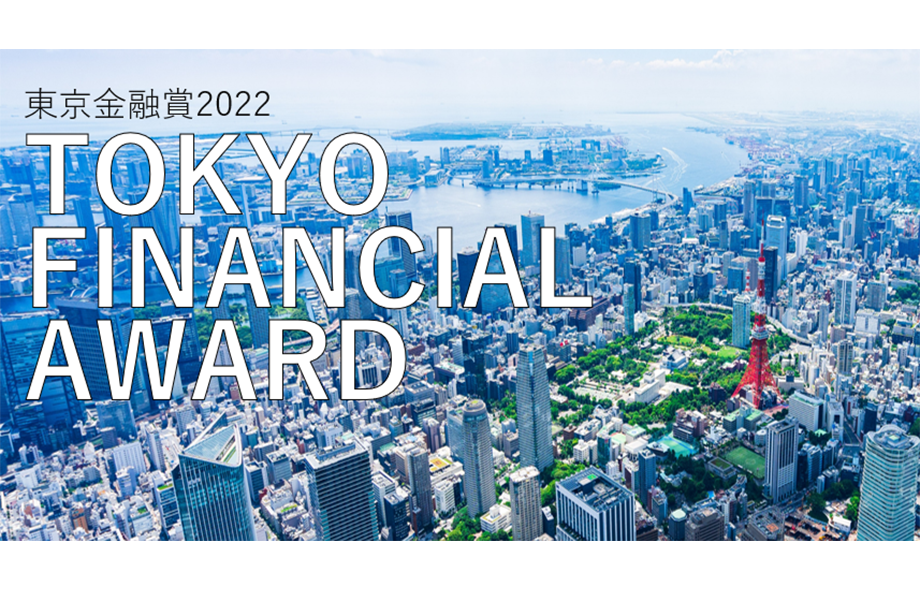
Tokyo Financial Award 2022: Announcement of the Award Ceremony
The Tokyo Financial Awardis given to financial businesses that promote ESG investment, as well as those that develop and provide innovative financial products and services to contribute to solving problems and meeting the needs of the people and businesses in Tokyo.
MORE
-
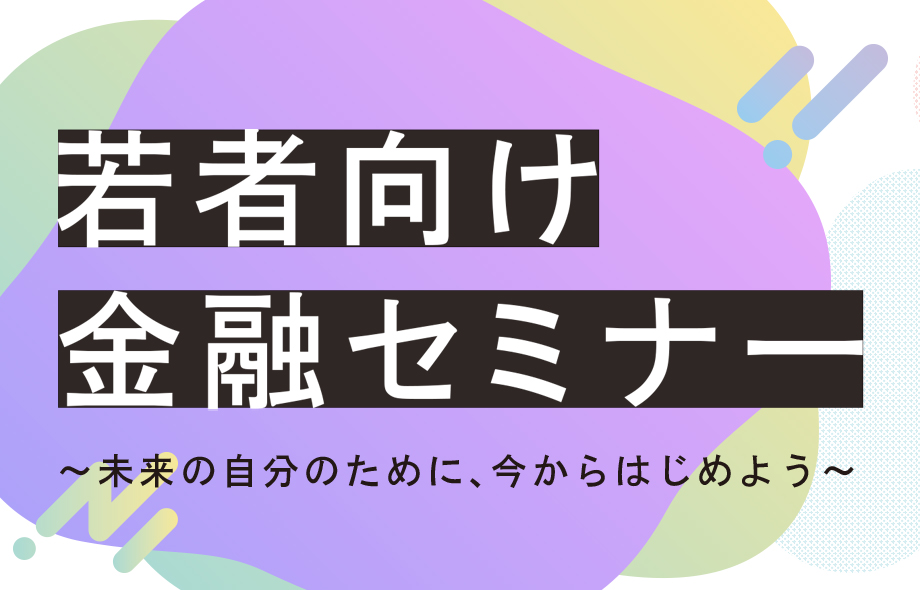
Financial Seminar for Young People―Session3
The third session will focus on wealth building with the theme "Thinking about Money with you in 80 years". It will be broadcast live online on Saturday, January 14, 2023.
MORE
-
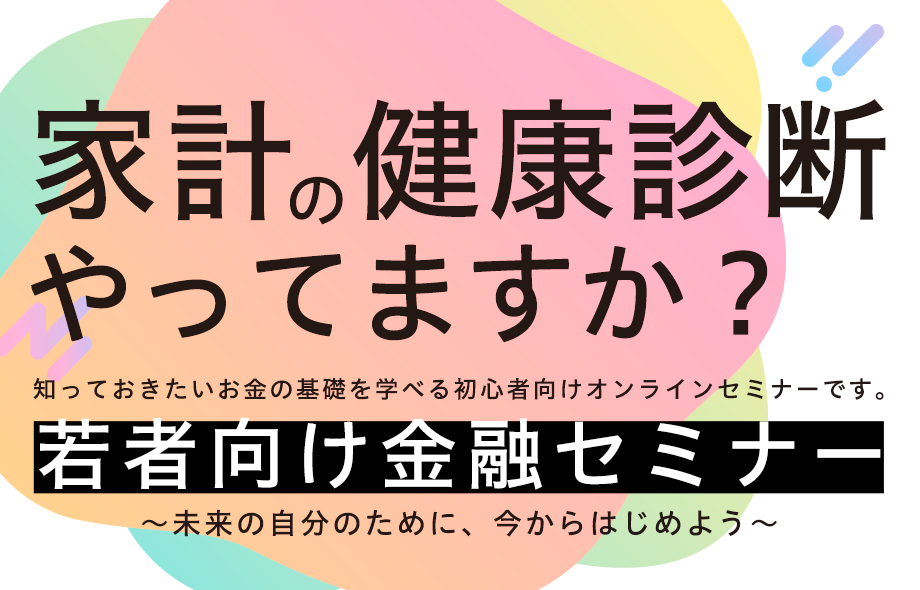
Financial Seminar for Young People―Session2
Session 2 will focus on the topic of “money meetings” and provide knowledge about family budget management, fintech and cashless payment.
MORE
-
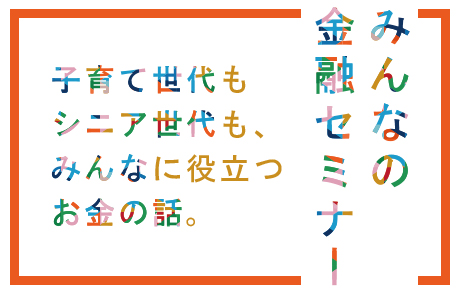
Financial Seminar For Everyone
Financial Seminar for Everyone is a seminar designed for those who are interested in and/or who want to start investing.
MORE
-
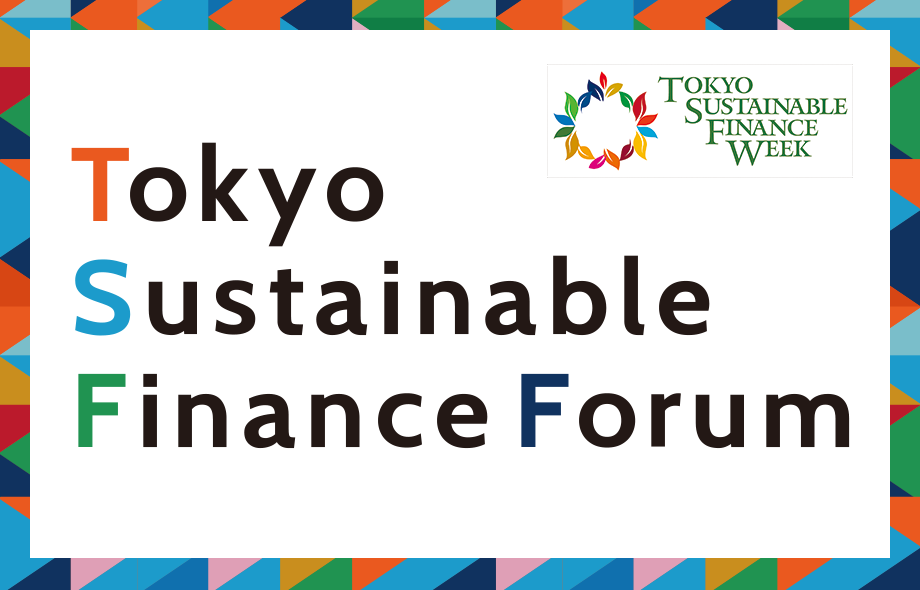
Tokyo Sustainable Finance Forum
This forum is aimed towards stakeholders of domestic and international financial institutions, etc., and will address subjects pertaining to global trends and future outlook of sustainable finance.
MORE
-
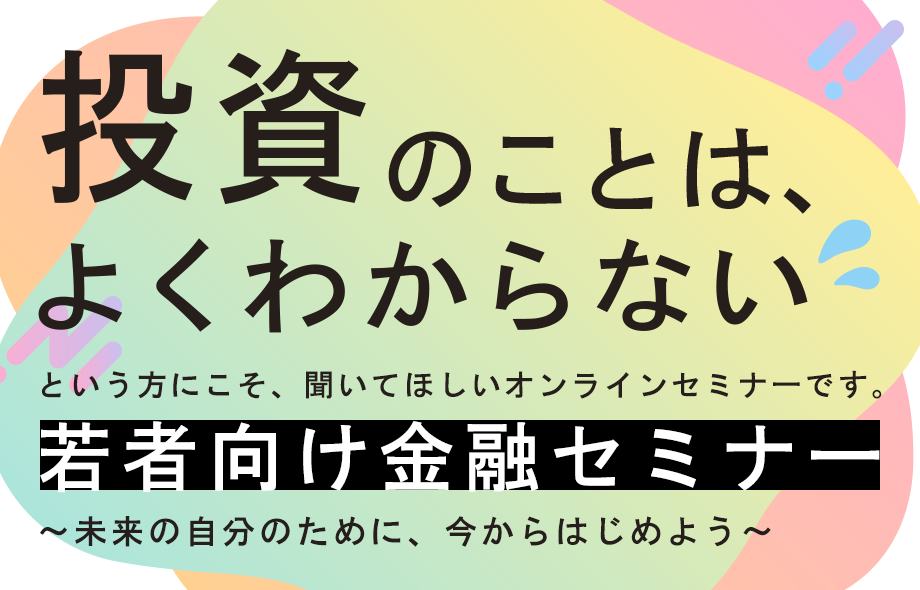
Financial Seminar for Young People—Session 1
Financial Seminar for Young People (3 sessions) is a seminar structured for young adults and university students who want to learn the basics of household budget management and asset building and put them into practice.
MORE
-

What is TSFW ?
The Tokyo Sustainable Finance Week (TSFW) is a special week that focuses on events related to sustainable finance with the aim of promoting ESG investment and sustainable finance, which contribute to building a sustainable city, and increasing Tokyo's presence in this field.
MORE
Learning contents
-

Financial Seminar for Young People—Session 3 Video Archives
The archive of the 3rd Financial Seminar for Young People held on January 14 is now available. The theme of the seminar was "Thinking about Money with you in 80 years".
MORE
*This seminar is presented only in Japanese.
-

Financial Seminar for Young People—Session 2 Video Archives
Two presenters talked about how holding a "money conference" can help people understand their life plans for money and life, and how the latest family budget management apps can help them manage their finances in a fun way.
MORE
*This seminar is presented only in Japanese.
-

Financial Seminar for Everyone Video Archives
FinCity.Tokyo held Financial Seminar for Everyone on Saturday, October 8, 2022. We are pleased to present a video archive of the event. If you would like to watch it again, or if you missed it, please click here.
MORE
*This seminar is presented only in Japanese.
-

Tokyo Sustainable Finance Forum Video Archives
FinCity.Tokyo held the Tokyo Sustainable Finance Forum on Tuesday, October 4, 2022. We are pleased to present a video archive of the event. If you would like to watch it again, or if you missed it, please click here.
MORE
-

Financial Seminar for Young People—Session 1 Video Archives
FinCity.Tokyo held "Financial Seminar for Young People—Session 1" on Saturday, September 10, 2022.
MORE
*This seminar is presented only in Japanese.
-
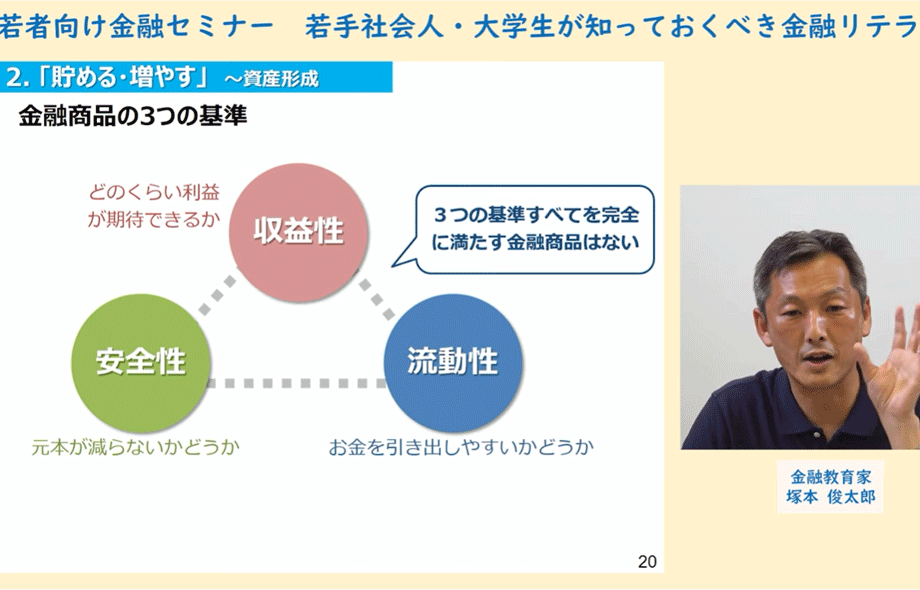
Finacial Seminar for Young People ~ Financial literacy for Young worker and Student ~
The Tokyo metropolitan government will be holding a financial seminar as an initiative to embody the “improvement of financial literacy” as set out in the “‘Global Financial City: Tokyo’ Vision 2.0.”
MORE
*This seminar is presented only in Japanese.
Relation event
-
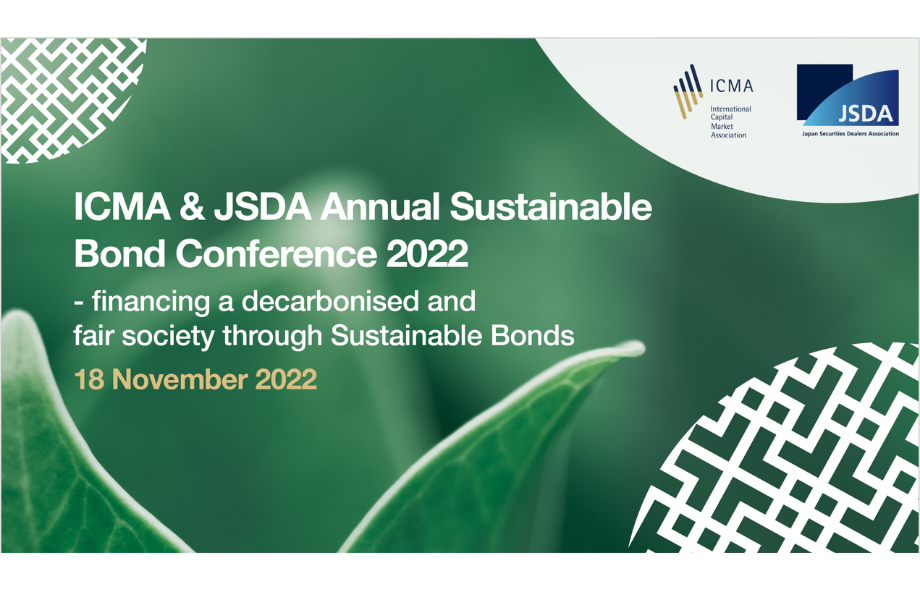
ICMA & JSDA Annual Sustainable Bond Conference 2022
The ICMA & JSDA Annual Sustainable Bond Conference - financing a decarbonised and fair society through Sustainable Bonds, presented by the International Capital Market Association (ICMA) and the Japan Securities Dealers Association (JSDA), will be held to discuss the progress and prospects of the sustainable bond market, in a hybrid format with in-person side taking place in Tokyo.
MORE
-
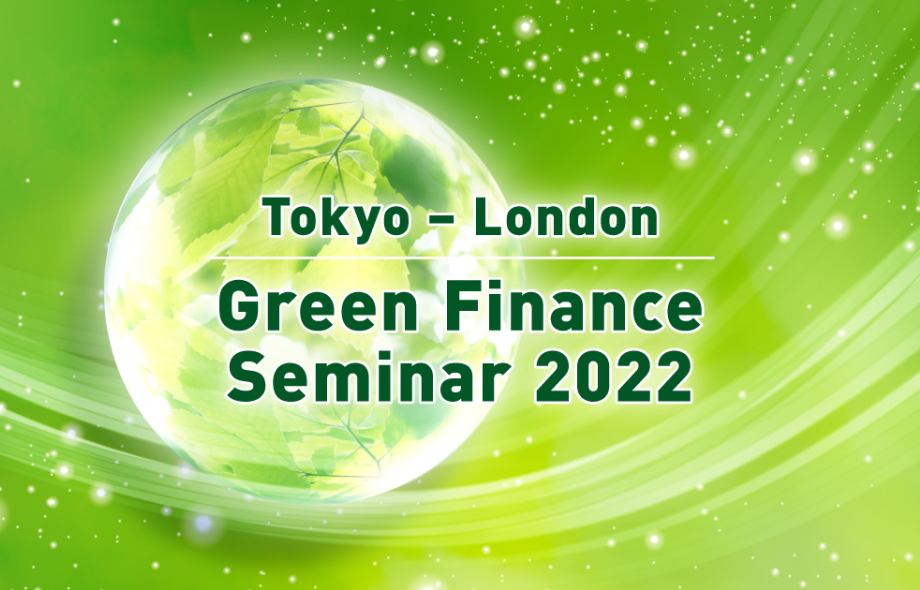
Green Finance Seminar 2022
The latest trends and initiatives in Tokyo and London will be introduced under the theme of "green finance," which has attracted much attention in recent years as a means of financing investments to solve environmental problems.
MORE
-

TIME TO ACT: Hydrogen Forum 2022
With the aim of the Broader Use of Green Hydrogen around the world, this Forum will share related information and knowledge while calling for concrete actions to prevent the growing threat of the climate crisis.
MORE
-

First Global Green Transformation Conference(GGX)
We will discuss for the first time, how we can envisage the change in society and how to drive economic growth and development through emissions mitigation, in other words global Green Transformation (GX).
MORE
-
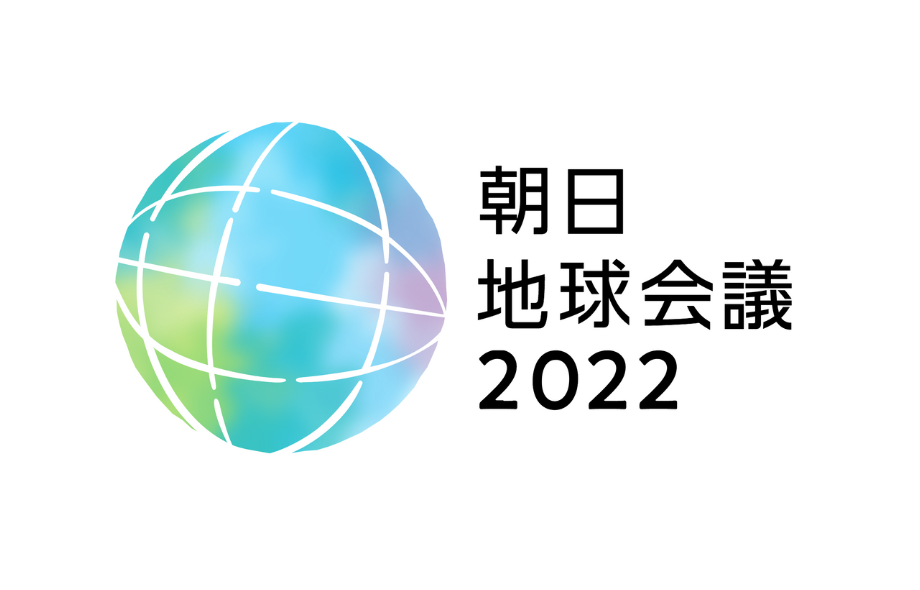
Asahi World Forum 2022
The Asahi World Forum 2022, the seventh in its series, will be held for 4 days from October 16 (Sun) to 19 (Wed) this year, with a main theme, “Hope with Action Can Change the World”.
MORE
-

Sophia University United Nations Weeks October 2022
Sophia UN Weeks started in 2014 to consider our world and future through the work of the UN. We are pleased to announce that the 18th UN Weeks will be hosted online with our hope to make the event more accessible to a wider audience (some events limited to Sophia University community members).
MORE
-
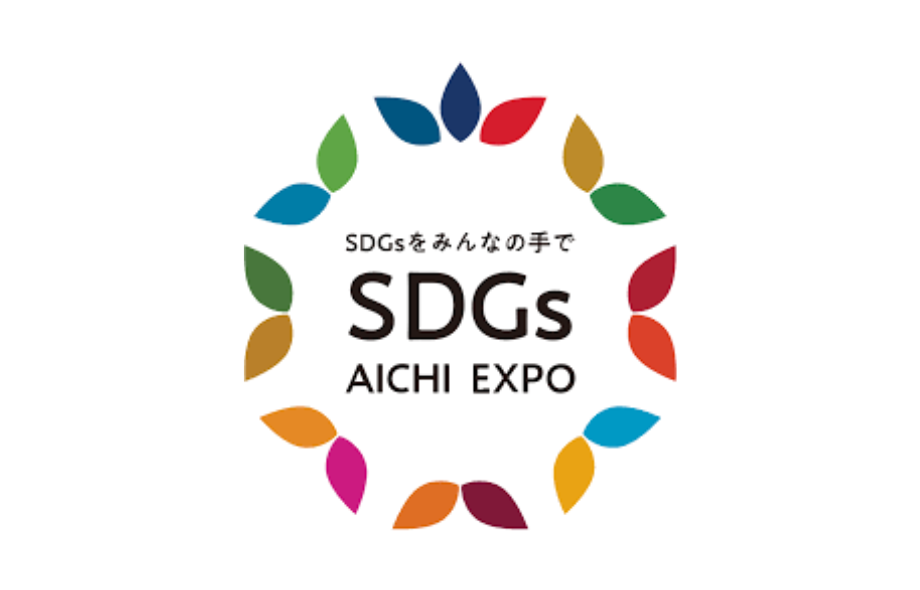
SDGs AICHI EXPO 2022
SDGs AICHI EXPO 2022, the third SDGs AICHI EXPO, will promote more concrete partnerships among various actors and generations, with the main objective of realizing "Aichi Partnership for Future Co-Creation" to solve international and regional issues.
MORE
-

OECD Forum on Green Finance and Investment 2022
Now in its 9th year, the Forum gathers senior policy makers and key public and private actors for action-oriented discussions on green and sustainable finance issues.
MORE
-
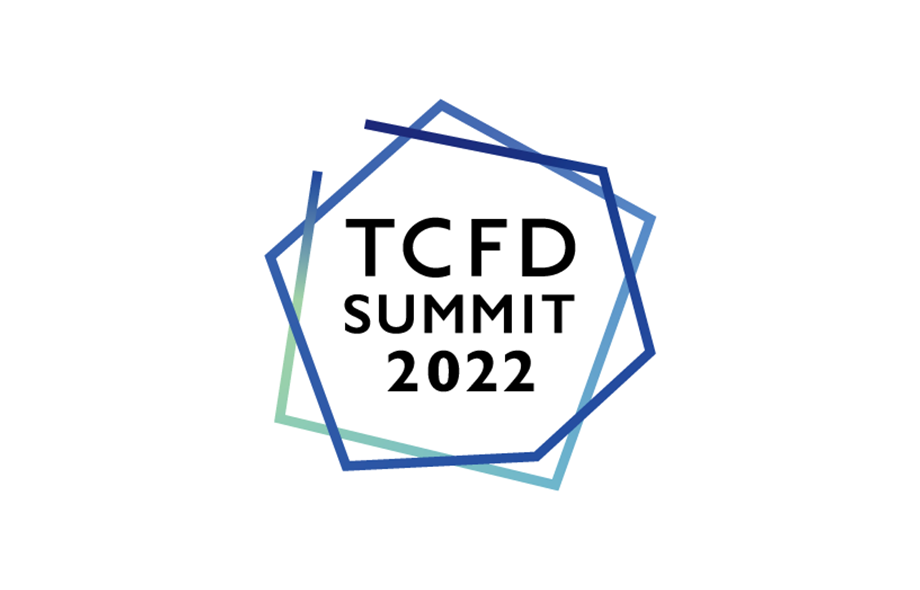
TCFD Summit 2022
At this year's TCFD Summit, industry and financial leaders will discuss what disclosures should look like in order to ensure that investors can properly appraise transition and innovation efforts—an important part of improving the quality of disclosures and achieving carbon neutrality based on shared international rules—and ensure that said disclosures will encourage financing. Participants will also speed up the flow of financing to help companies achieve carbon neutrality.
MORE
-
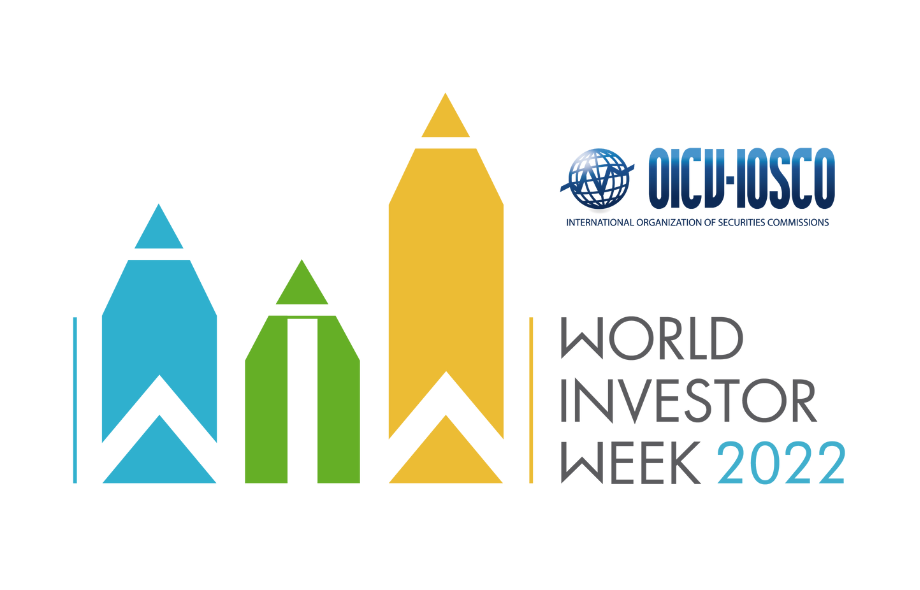
World Invester Week 2022
World Investor Week (WIW) is a week-long, global campaign promoted by IOSCO to raise awareness about the importance of investor education and protection and highlight the various initiatives of securities regulators in these two critical areas.
MORE


